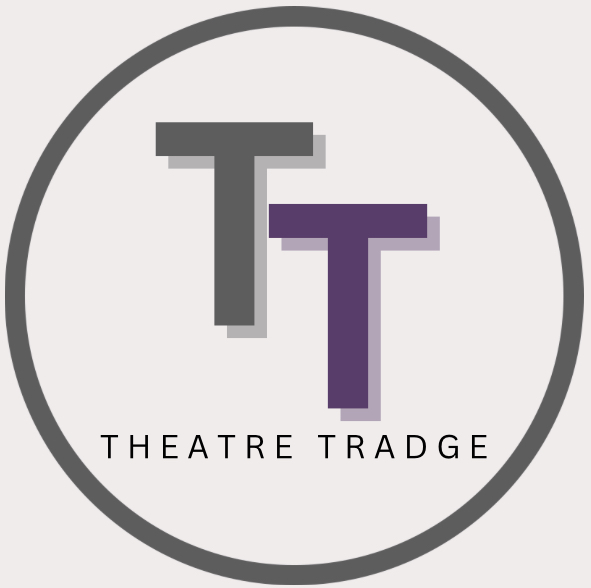STEREOPHONIC - Duke of York’s Theatre (13/06/25)
- James Tradgett
- Jun 15, 2025
- 4 min read
Updated: Jun 24, 2025
David Adjmi and Will Butler provide stunning deep dive into psyche of recording rockers
In the history of studio recording, from local indie bands to the biggest artists on the planet, it is exceedingly rare that you see any new record seen through to completion without some degree of contention arising between bandmates and studio techs alike. Whether this be the clashing of creative visions, fractured personal relationships, general exhaustion, or the sense of isolation from the outside world, damaging the prospect of completing the record in a timely fashion; in the case of David Adjmi’s new play Stereophonic though, a final option: “all of the above” is certainly most applicable.
Stereophonic follows a fictional rock band on the precipice of major global stardom, as they record their newest studio album over the course of a year between 1976 and 1977; the music created plays a major part in the overriding narrative, but it isn't where the main focus falls for the majority of the time, as although we have a discernible linear path taken through the course of the play's narrative, this is very much a character driven piece, and it is enormously engaging seeing how the various personal and professional relationships play out through the course of the play's 4 acts, and 3 hour 15 minute runtime.

At first glance on paper, a play totalling over three hours, about a band in a studio recording a new album, would be plenty to raise a few eyebrows and elicit a great deal of skepticism from audiences and critics alike, especially since there are other pieces of theatre such as The Commitments and School of Rock that equally deal with music making in a more compact manner. The absolute perfect move made by director Daniel Aukin though has been to keep its innate humanity and realism at the heart of the action, and focussing almost exclusively on the individuals and how they interact, both on a personal and a professional level, as well as how one often bleeds into the other. And it's the time and space afforded to the narrative that really accentuates this sense of authenticity, as it is so starkly undramatic that somehow this adds to its distinct fascination.
But this is a play that, understandably, always has the music making, both the songs themselves and the process of putting them together, fully in our collective consciousness. In spite of the fact that the songs were composed specifically for the play, Will Butler's score is staggeringly authentic, with clear influences from real 70s music, including Fleetwood Mac, on whom the band in the play are heavily believed to be based, whether directly or indirectly. The presentation of the recording process similarly feels terrifically genuine, and David Zinn's fully functional studio set is certainly a major contributor to this.
It's not even just the functionality of Zinn's scenic design, but the tiny details you constantly notice as the play goes on, from the gorgeously ornate decor, to the various alcohol bottles and beer coolers scattered around, and even inside the recording booth itself (which is fully soundproofed, making for some delightfully funny exchanges) the detail is second to none, and it's glorious to behold; even after having seen the show at the Golden last year, I still kept noticing something new throughout the course of the performance the second time around. With every creative element, from Enver Chakartash's vibrant costumes so full of personality, to the stunning lighting design by Jiyoun Chang, director Aukin really hasn't skimped on any of the details, creating something truly captivating and fully immersive.

It is a perpetual treat to experience such a top quality group of performers excelling, and playing off of each other so well, in both the scenes where tempers are frayed to the max, and also the moments of vulnerability and intimacy. There is definitely a discernible divide, and delightful dichotomy, between the "alpha" and "beta" characters on display, from the fiery outspokenness and fervency of characters like Jack Riddiford as Peter, to the inherently defeatist, submissive nature of others like Reg, portrayed in a marvellously mature, graded manner by Zachary Hart, and Andrew R. Butler's loveably nonchalant studio tech Charlie is perhaps the most endearing performance of the day.
This critic's pick of the day though is Lucy Karczewski as Diana, one of two vocalists, and love interest to Peter. The toxic nature of the pair's relationship is arguably the primary contributing factor to much of the disharmony within the band, most notably since they are revealed to both have been later additions to the group following its initial formation. Karczewski gives a performance of real fire and honesty, her animosity towards her controlling boyfriend is frighteningly relevant, and the more intimate moments we see of her endear her to us magnificently. And being honest, there aren't enough superlatives available to fully laud how sensational this cast were as, both individually and collectively, their acting and musical performances were top drawer.
What writers Adjmi and Butler have managed to achieve and express through simple human connection deserves so much adulation, and the notion of relating to one another through music is perhaps the biggest takeaway from this extraordinary new play. To put it bluntly, Stereophonic rocks, and you'll be listening to these songs for years to come!
★★★★★
"Stereophonic" plays at the Duke of York's Theatre until the 11th of October 2025, you can buy tickets through the ATG website.






Comments